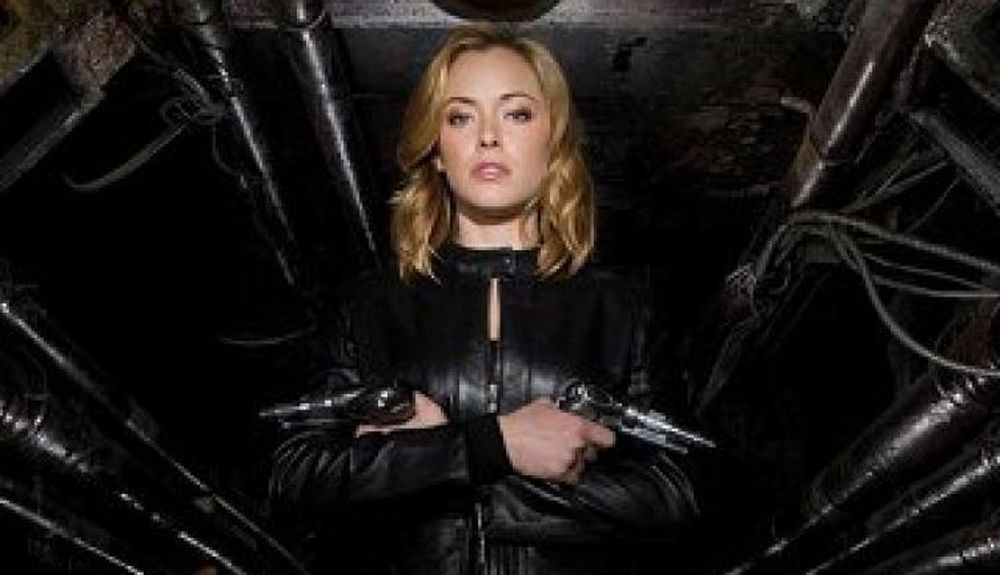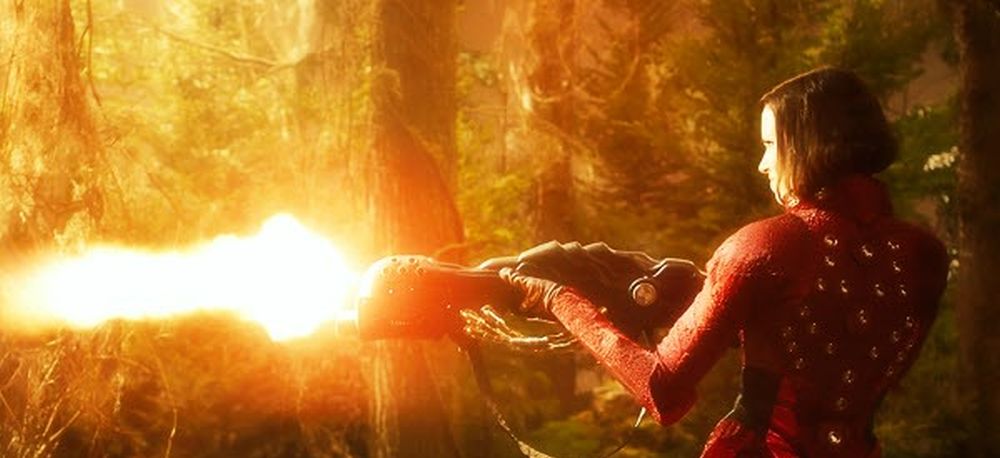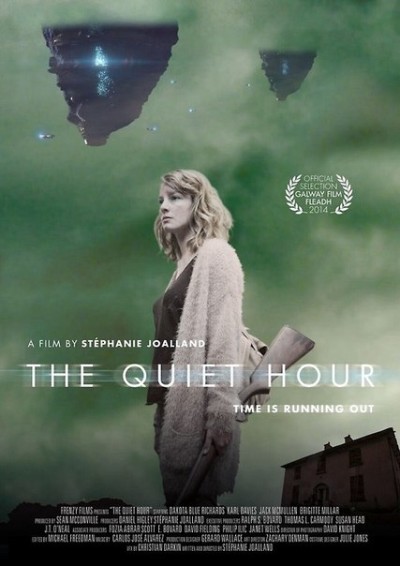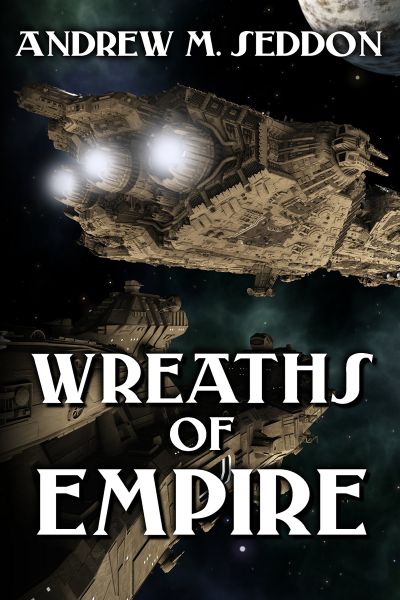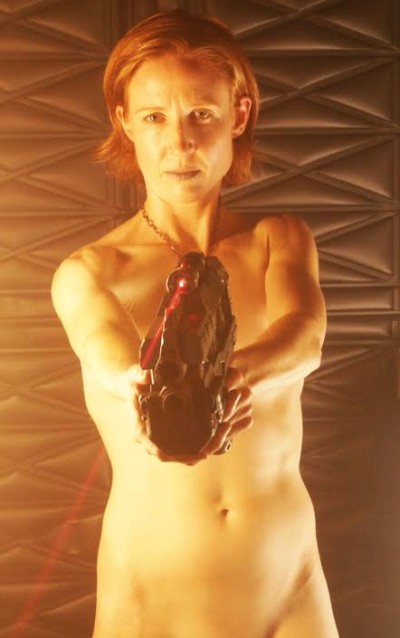Literary rating: ★★★★★
Kick-butt quotient: ☆☆☆☆

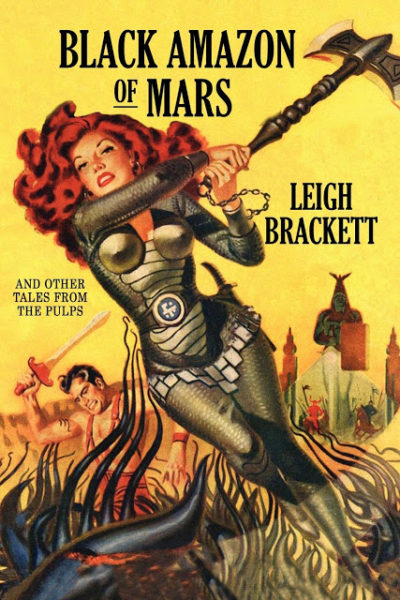 Normally, I like to start a series at the beginning. But I chose to read this second novella of Brackett’s Eric John Stark series, as my long-awaited first introduction to her work, because Amazon offered me the chance to read it for free on my Kindle app. (And yes, I’ll definitely be buying a paper copy!) That means there are unanswered questions here about Stark’s origins and background, and about the Martian world –what kind of “beasts” are used as mounts here, for instance, or what the economic base of a city-state like Kushat is– that probably have answers in the first book, or earlier stories. (The author wrote about the character in both formats, and not all of the corpus is still in print.)
Normally, I like to start a series at the beginning. But I chose to read this second novella of Brackett’s Eric John Stark series, as my long-awaited first introduction to her work, because Amazon offered me the chance to read it for free on my Kindle app. (And yes, I’ll definitely be buying a paper copy!) That means there are unanswered questions here about Stark’s origins and background, and about the Martian world –what kind of “beasts” are used as mounts here, for instance, or what the economic base of a city-state like Kushat is– that probably have answers in the first book, or earlier stories. (The author wrote about the character in both formats, and not all of the corpus is still in print.)
Genre giant Brackett stands in the Romantic tradition, and represents SF’s “soft” school; she’s known for her “swords-and-planet” tales of adventure and derring-do on mostly low-tech worlds, and her style was shaped in the hey-day of the pulp magazines. Stark himself has affinities to the typical Burroughs hero, or to some of Robert E. Howatd’s protagonists; the appeal of “primitivism” (which I’ve discussed elsewhere) is clearly present here, though in Stark’s case, he’s not a refugee or escapee from civilization. (Of Earth stock, he was born on Mercury, and apparently grew up in a rough setting and circumstances, with trauma that left him carrying a lot of psychological damage.) He’s a bit more rough-edged than , say, John Carter, and indeed can at times seem almost feral. But he’s clearly a person of principle, with a strong sense of loyalty and duty, and a willingness to put his life on the line for what’s right when it really matters.
Fans of this site, however, will be as (or more) interested in the title character here. Given the title and the cover art, we know she’s definitely a fighting female. For perhaps the first half or more of the book, however, some readers might wonder when she’s going to show up. Don’t worry, though –Brackett incorporates one plot element here, at a crucial moment, that’s meant to come as a major surprise. It does to Stark (of course, he didn’t see the cover or read the title!), but it probably won’t to most readers. Not to share any spoilers, but the phrase “hidden in plain sight” might come readily to mind. And our ax-wielding lady’s fighting prowess won’t disappoint.
Of course, if she’s judged honestly and fairly, it has to be admitted that she’s pretty much a villainess in the legitimate definition of the word; she’s motivated by selfish personal ambition for power and status, and she’s quite ruthlessly willing to inflict suffering and death on any number of people who defy that goal. But she’s also a nuanced villainess who does have some genuine good in her, which shows itself in actions. (And sometimes, when the chips are down, a nuanced villainess with some genuine good in her might find that she has the stuff inside to add “heroine” to her resume’….) That degree of nuance makes her an interesting character (at least to me).
Like many SF authors who wrote before the advent of space exploration by unmanned probes, Brackett imagined the other inner planets of our solar system to be much more hospitable to human life than they actually are. Her Mars is a cold, arid world whose fragile ecology depends on the annual summer melting of much of the polar ice cap; but it’s a world with a human-like native race (if they differ from Earth humans in any way, it’s not stated here), with a civilization originating a million years earlier, in the time of a culture hero called Ban Cruach. Much of his story is forgotten and mysterious; but at the end of his life, he passed through the Gates of Death, the high pass that is the only way through the mountains enclosing the uninhabited, permanently frozen region around the North Pole itself, after leaving behind an enigmatic talisman in the northern city of Kushat (which controls access to the pass). Now, at the behest of a dying friend, who stole the talisman years before, Stark is journeying through the bitterly cold Martian winter and across the wild, mountainous North (a region much less civilized than southern Mars) to return the object to Kushat.
Brackett’s world-building is much more plausible than that of Burrough’s Barsoom novels, and (allowing for the basic premise) the science isn’t, to a lay reader like myself, glaringly off-beam. (How the high technology –yes, there is some here, but I’m not writing any spoilers– works isn’t explained, and it’s not extrapolated from any existing technology, but that’s because we’re in the realm of soft SF; the author’s purpose isn’t to speculate about what high technology might someday do, but to use it to tell and enable a story about people in a particular dramatic situation.)
Brackett’s imagination is genuinely original, in a type of story that often wasn’t handled with great originality in the time period when she wrote. The plot covers just a few days, and incorporates a lot of action, usually violent action (corpses at one point are lying in “windrows”), but there’s no graphic wallowing in violence for its own sake. Our main characters here aren’t plaster saints, and we might disapprove (big time, in some cases!) of some of their actions; but they’re each vibrantly alive, understandable men and women whose fate we come to care deeply about. They’ll face conflicts and challenges here that involve extremely high stakes, and that will tax physical, mental and moral strength to overcome (IF they’re overcome….); and the personal interrelationships are complex and emotionally evocative.
Bottom line, if you like an old-school pulp action sci-fi yarn in which the gal gets to swing the sword (or, in this case, the ax) as well as the guy, I think you’ll find this a very good read of the type!
Author: Leigh Brackett
Publisher: Aegypan, available through Amazon, both for Kindle and as a printed book.
A version of this review previously appeared on Goodreads.






 Having used my entire quota of hyphens for this review in that tag-line, what do we have here? I could remember virtually nothing about the original, even though it was only a couple of years ago we reviewed it. Seems to have ended up with the same vaguely mediocre rating though. The problem here, however, is mostly one of pacing. After a brief flurry of impressive activity at the beginning, there’s not much happening on the action front for about an hour, and what takes its place falls short of adequate entertainment.
Having used my entire quota of hyphens for this review in that tag-line, what do we have here? I could remember virtually nothing about the original, even though it was only a couple of years ago we reviewed it. Seems to have ended up with the same vaguely mediocre rating though. The problem here, however, is mostly one of pacing. After a brief flurry of impressive activity at the beginning, there’s not much happening on the action front for about an hour, and what takes its place falls short of adequate entertainment.

